GOING BEYOND MENTAL BARRIERS
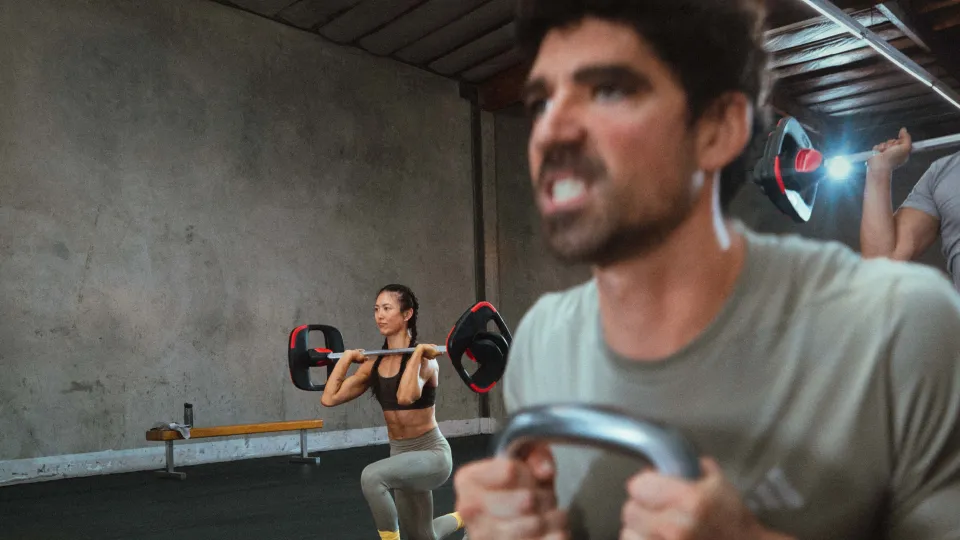
Simple hacks to help take you beyond mental barriers, beat the burn, and find the strength to reach new heights.
Read on and you’ll discover:
- How talking to yourself can help you reach your full potential
- What music will do for your motivation
- The facts about swearing when you work out
- How others can help you push harder
Ever felt like you couldn’t do one more rep? Now, imagine someone offered you $5 million to push through. You’d likely find the strength. That’s not magic; it’s proof that your mind often quits before your body does.
So how can you leverage this and dig deep during sets of back-to-back burpees?
Check out these helpful hacks …
#1 Self-talk: Coaching from the inside out
Self-talk – the inner voice we all hear mid-workout – heavily influences performance. Positive internal cues can lower perceived effort, helping you go harder without it feeling more taxing. So be sure to talk yourself into training harder, rather than talking yourself out of it. You can do this by planting mantras in your mind – and saying them out loud if you can: 'I’m strong. I’ve got this,' or, 'Just one more. That’s where change happens.'
Remember, your brain acts as a ‘central governor’, limiting exertion to protect you. It sometimes kicks in too early, triggering fatigue before your muscles are truly spent. So in those moments when you're really feeling the burn and those last five seconds of squats feel like five minutes, tell yourself: 'This isn't failure – it's your brain playing it safe. You've got more to give'.
The more you reframe fatigue, the more the brain learns to adapt. Small wins accumulate and will change what you believe is possible.

#2 Pump up the volume… ish
Music is more than background – it’s a performance tool. Science shows a good beat can make us work out faster and harder, and also make exercise seem easier and more enjoyable. According to a leading expert on the interplay between music and exercise, Professor Costas Karageorghis, the right workout music can be a type of “legal performance-enhancing drug.”
Upbeat tracks (120+ bpm at ~80-85 dB) boost reaction time, heart rate, and focus – especially when synced to movement. But louder isn’t always better. Overstimulation can hurt performance and hearing. Studies show no drop in effort when volume is lowered to safe levels. The magic lies in tempo, genre, and personal taste – not just decibels.
Choose a volume that lifts your energy – without overwhelming it.
#3 Chunking: Win the workout in pieces
When a challenge feels too big, motivation drops. Chunking helps by breaking sessions into smaller, manageable goals. When you chunk your training, you focus on what's next, not what's left. As a result, progress feels achievable and your confidence builds.
This is where group training workouts come into their own. Every time you choose a workout like BODYPUMP™ or LES MILLS GRIT™, the music and moves might differ, but the format will stay the same. And that format is expertly crafted to keep you motivated – and the workload manageable.
Rather than focus on the full workout, a smart move is to simply focus on doing your best in each specific track. If you’re just starting out, simply aim to do the first few tracks. Then add an extra track each time you do the workout.
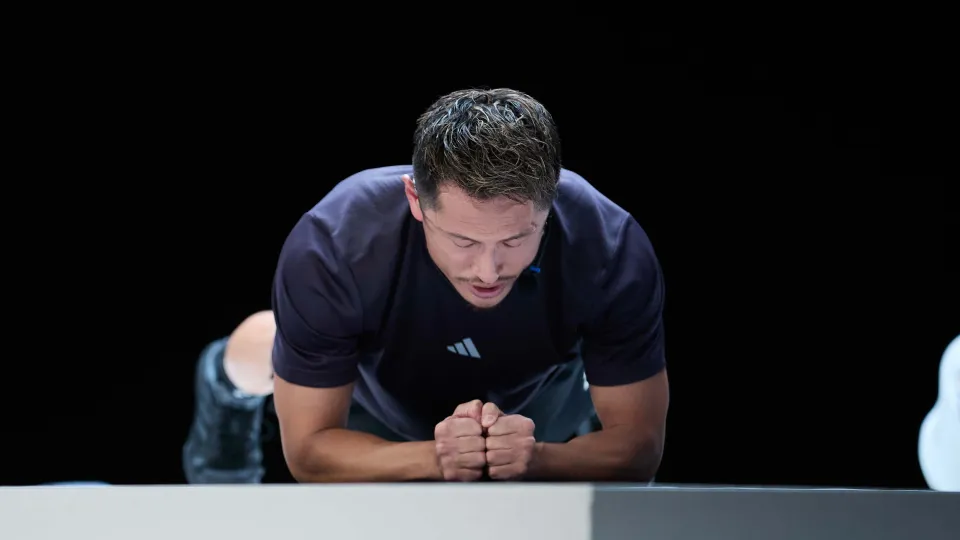
#4 Breathing and mindfulness: Staying cool under pressure
Shallow breathing can make effort feel harder, while more controlled breathing improves oxygen flow and focus. Of course, in the middle of intense exercise, it’s not easy to take big, slow breaths – and that’s okay. Simply aim to make your moments of recovery count. As soon as you hit a rest period, start to take deep belly breaths in… and then exhale slower than you inhaled. Using rest and recovery to reset your breathing can help reduce anxiety and prevent overexertion, keeping you mentally present.
Learn more about how breath training can improve athletic performance.
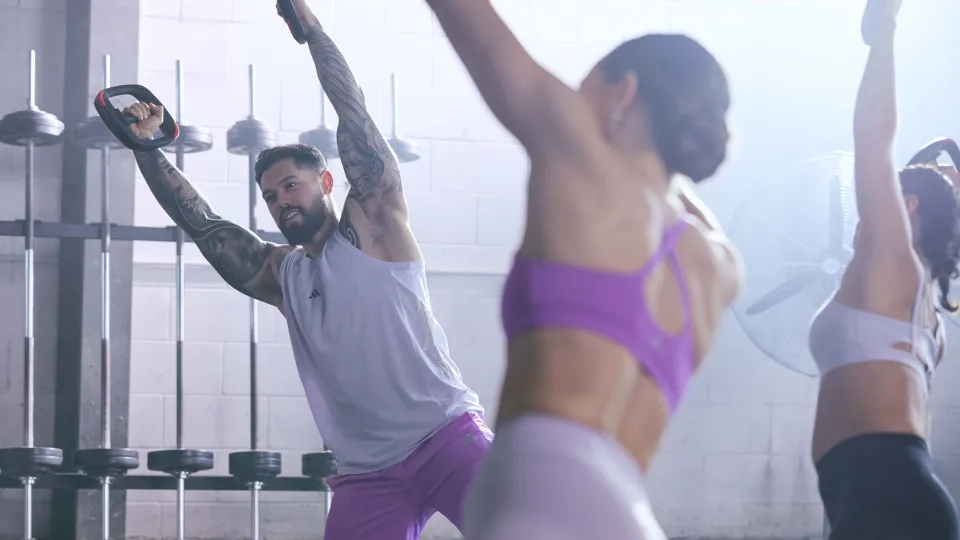
#5 Leverage the Köhler Effect: Work out with others
Among the most powerful motivators are the accountability and sense of connection we get from working out with others. This is also known as the Kohler Effect. One study compared people planking on their own and with a partner (who had a superior ability). When planking with a more capable partner, people were clearly more motivated, increasing their plank duration by 24 percent. Another Kansas State University study found that exercising alongside other capable exercisers can increase your workout time and intensity by 200 percent.
Research indicates that when we work out alongside others, we're far more likely to stick to exercise than if we go it alone, because we get more enjoyment and satisfaction when we work out in a group.
#6 Tap into the power of profanity
It seems swearing could actually be a science-backed way to improve muscle strength and exercise stamina. Scientists have found that muttering or yelling (there is no difference in effect), a well-timed profanity, has the ability to reduce exercise pain. When researchers put exercisers' foul mouths to the test while cycling, they found that those who swore (repeatedly) were able to pedal harder for longer than those who repeated a more neutral word.
It’s hypothesized that swearing activates the sympathetic nervous system, boosting adrenaline production. But before you start adding curses to your curls, it’s worth noting that it’s not necessarily the words themselves, but rather the emotional intensity of the angry utterances.
The most important thing: Enjoy yourself
Pushing your limits can be empowering, but it doesn’t have to be the goal of every workout. The real magic happens when you enjoy the process. When you find joy in what you’re doing, consistency follows, and that’s the win that will lead to transformative training and long-term results.

FIND A WORKOUT WORK OUT ON DEMAND
Sign up to Fit Planet and get fresh health and fitness news and advice straight to your inbox. Subscribe
FIT PLANET SIGN UP
Sign up to Fit Planet and get fresh health and fitness news and advice straight to your inbox.

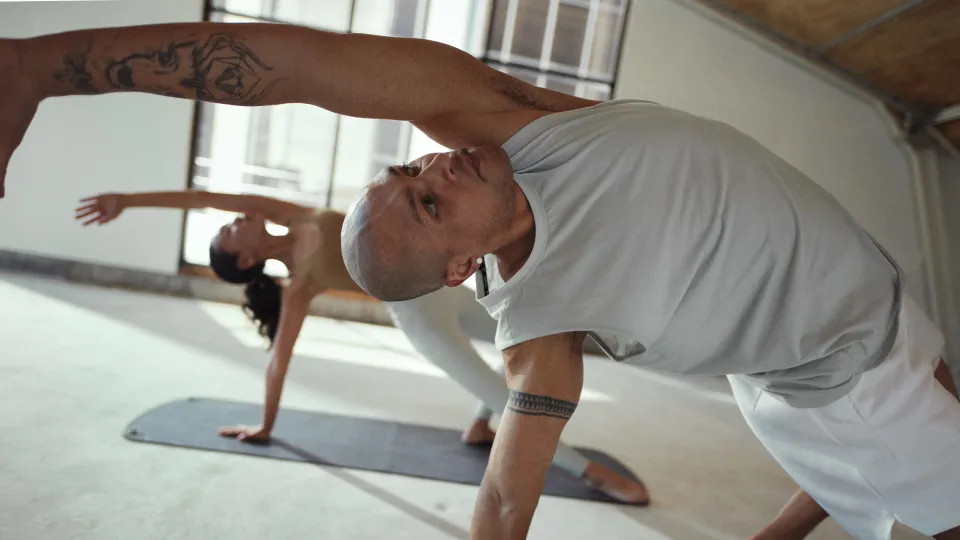
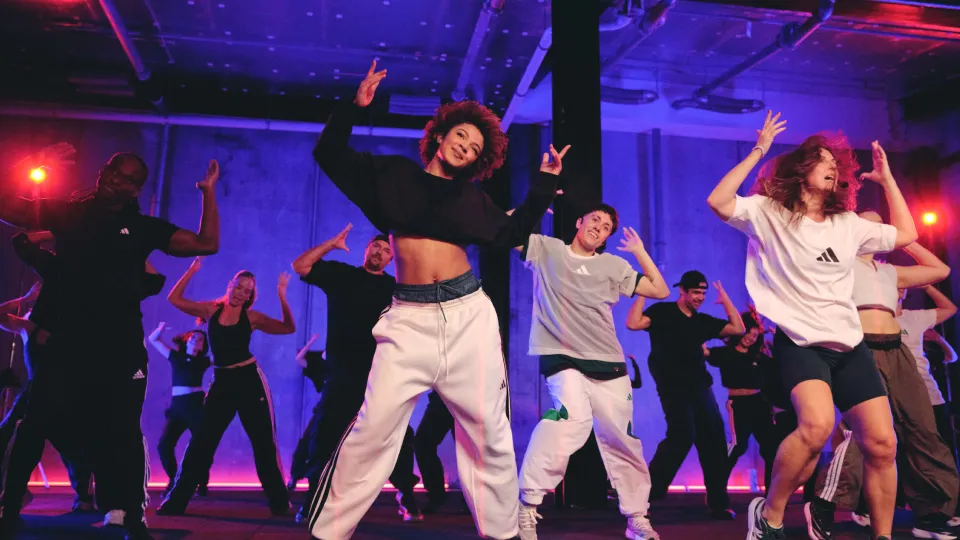
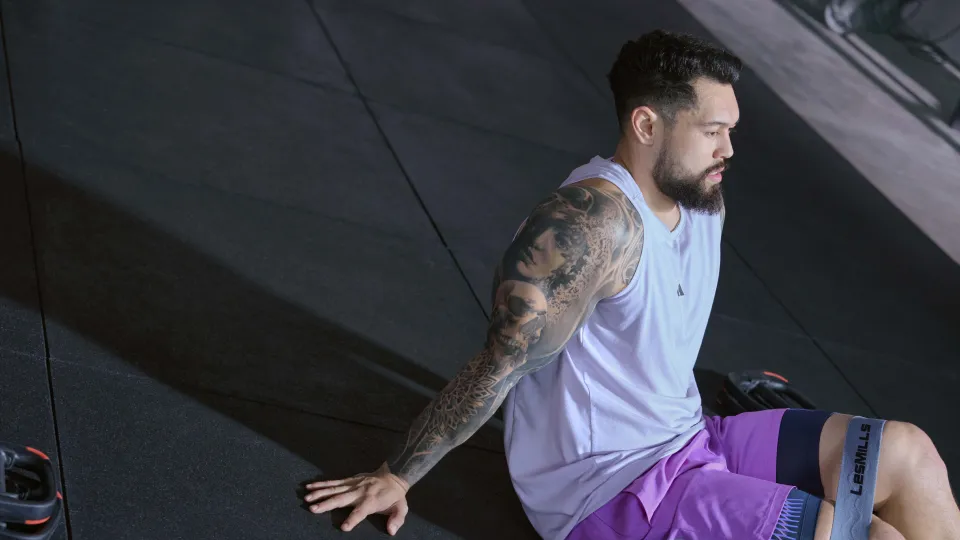



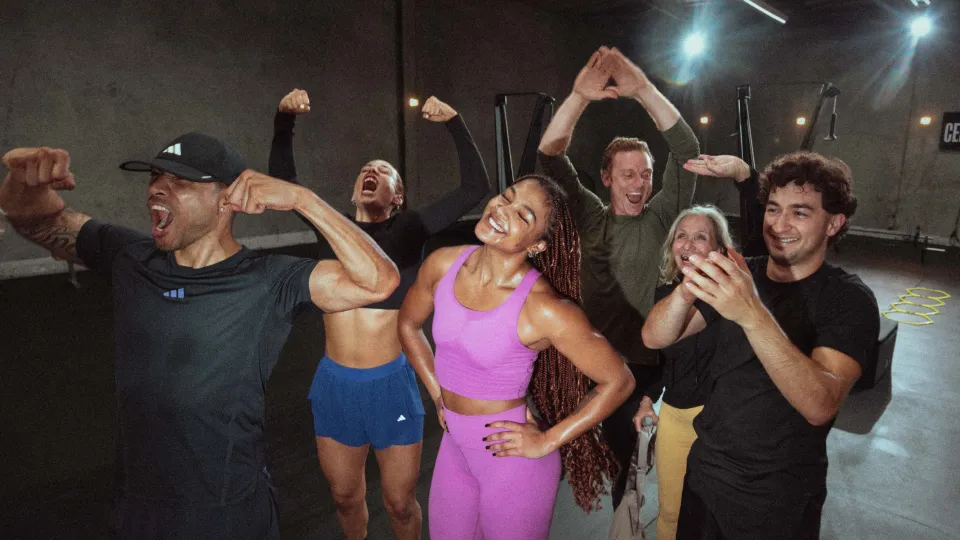

.webp)

